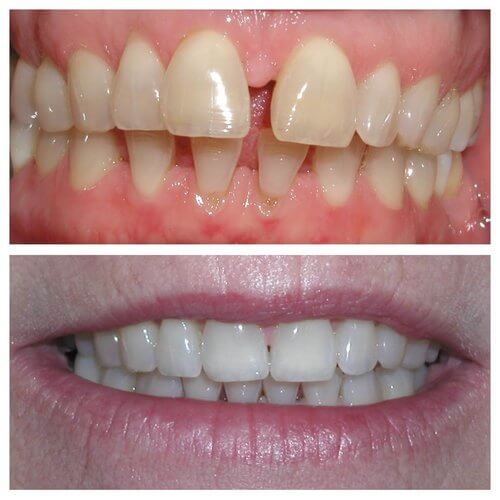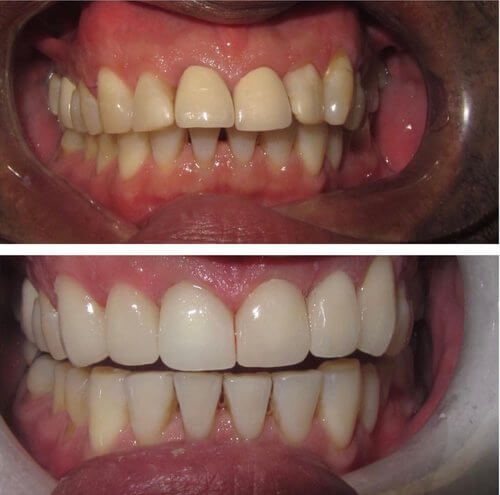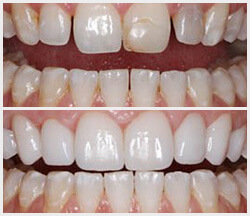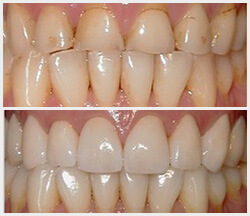Advantages and Drawbacks of Root Canal Treatment
Root canal therapy has become increasingly common, but is still surrounded by a lot of myths and misconceptions. If you’re undergoing a root canal treatment, you’ll want to know more about its benefits and potential risks.
Learn more about the benefits and risks with Drs. Olsen, Napolitano, and Cangialosi.
Benefits of Root Canal Therapy
Root canal therapy has many benefits for patients who need it.
Pain Relief
Root canal therapy is often performed to relieve pain caused by an infected or damaged tooth. The procedure removes the source of the pain, which can provide almost immediate relief.
Prevents Infection
When a tooth is damaged or infected, the bacteria can spread to other parts of the body. Root canal therapy removes the infected tissue and prevents the bacteria from spreading, which can protect your overall health.
Saves Your Natural Teeth
In the past, the only treatment for a damaged or infected tooth was extraction. Root canal therapy allows you to keep your natural tooth, which is always the best option.
Restores Functionality
A damaged or infected tooth can make it difficult to eat or speak properly. Root canal therapy restores the functionality of the tooth, allowing you to eat, speak, and smile with confidence.
Improves Overall Oral Health
Maintaining good oral health is essential for your overall health and well-being. Root canal therapy can help you maintain healthy teeth and gums, which can reduce your risk of other health problems.
Risks of Root Canal Therapy
Like any medical procedure, root canal therapy carries some risks. While these risks are relatively rare, it is essential to be aware of them before undergoing treatment.
Incomplete Removal of Infected Tissue
If the dentist doesn’t remove all of the infected tissue during the root canal therapy, the infection can return. This can result in the need for additional treatment or even tooth extraction.
Damage to Surrounding Teeth
During root canal therapy, there may be accidental damage to the surrounding teeth or tissues. This can lead to additional dental problems that may require further treatment.
Discoloration of the Tooth
After root canal therapy, the treated tooth may become discolored. While this is a relatively minor side effect, it can be an aesthetic concern for some patients.
Weakening of the Tooth
After a root canal, the treated tooth may become weaker and more prone to fractures. This can sometimes be prevented by placing a crown on the tooth.
Alternatives to Root Canal Therapy
In some cases, root canal therapy may not be the best option for treating a damaged or infected tooth. Here are some alternatives to consider:
- Tooth Extraction: In cases where the tooth is severely damaged or infected, extraction may be the only option. While this may seem like a drastic measure, it can be necessary to prevent the spread of infection and protect your overall health.
- Antibiotics: Your dentist may prescribe antibiotics to treat an infected tooth. While this can help alleviate pain and reduce the infection, it’s not a long-term solution and may not be effective in all cases.
- Pulp Capping: Pulp capping is a procedure where a dental professional removes a small amount of damaged or decayed tooth material and places a protective covering over the exposed pulp. This allows the tooth to heal itself and can help avoid the need for a root canal.
- Apicoectomy: An apicoectomy is a surgical procedure performed when a root canal has failed or when there’s a persistent infection and involves removing the tip of the root and any infected tissue.
Frequently Asked Questions
Can I go back to work after a root canal?
Most patients can return to work or other activities immediately following a root canal. Avoid eating or drinking anything until the numbness from the anesthesia wears off to avoid accidentally biting or burning the tongue or cheek.
Can I take antibiotics instead of getting root canal treatment?
Antibiotics aren’t always a substitute for root canal therapy. While antibiotics can help manage infection, they can’t eliminate infection within the tooth. Root canal therapy is necessary to remove the infected tissue and restore the health of the tooth.
What is the success rate of root canal therapy?
The success rate of root canal therapy is generally high, with studies showing a success rate of over 90 percent. However, the success of the procedure can depend on various factors, including the complexity of the case and the skill of the dentist performing the procedure.
What is the average age for root canal therapy?
There’s no specific age range for root canal therapy, as the need for the procedure can arise at any age. However, the risk of needing a root canal increases with age, as the teeth become more prone to decay and damage over time.
Determine the Best Treatment for You
Root canal therapy can be a highly effective treatment option for those suffering from tooth decay or damage. While there are some risks associated with the procedure, the benefits of saving a natural tooth and avoiding more invasive treatments like tooth extraction are often well worth it.
Call our Staten Island dental office at (718) 948-5111 for more information today.



Insurance
We accept many insurances. Please contact one of our Insurance Coordinators to discuss your dental coverage plan.
(718) 948 5111
appointments@sidental.com
Open 7 days a week
Reviews
The dentists are absolutely excellent…
“I have been going here for years. The dentists are absolutely excellent and they always have an appointment available that fits into a busy schedule. I also completed invisilgn and my teeth are perfectly straight now. They also practice preventive medicine and just went in for my 6 month cleaning. Every time feel like I have a new set of choppers and best yet the check up noted no cavities!.”
— J.R
Pleasant visit
“As usual, it was a pleasant visit thanks to Dr. Nasso and her great staff..”
— C.M.
Always treated with courtesy and respect.
“Always treated with courtesy and respect. All of my questions were answered regarding upcoming treatments..”
— J.C.
Smile Profile




Put your best face forward.
Create a positive change to your teeth and your smile.
